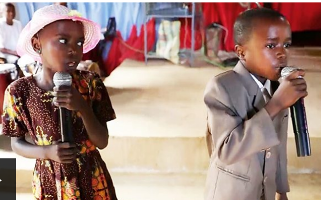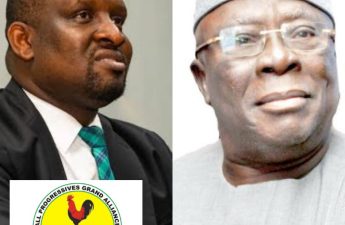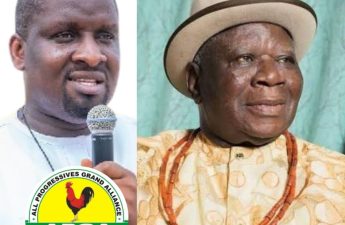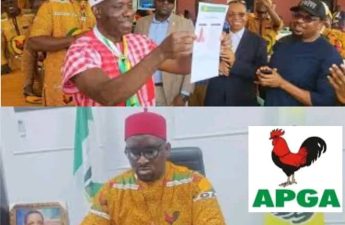In Ubang, a farming community in southern Nigeria, men and women say they speak different languages. They view this unique difference as “a blessing from God”, but as more young people leave for greener pastures and the English language becomes more popular, there are concerns it won’t survive, reports the BBC’s Yemisi Adegoke.
Dressed in a brightly coloured traditional outfit, a red chief’s cap and holding a staff, Chief Oliver Ibang calls over his two young children, eager to demonstrate the different languages.
He holds up a yam and asks his daughter what it is called.
“It’s ‘irui’,” she says, without hesitating.
But in Ubang’s “male language” the word for yam, one of Nigeria’s staple foods, is “itong”.
And there are many other examples, such as the word for clothing, which is “nki” for men and “ariga” for women.
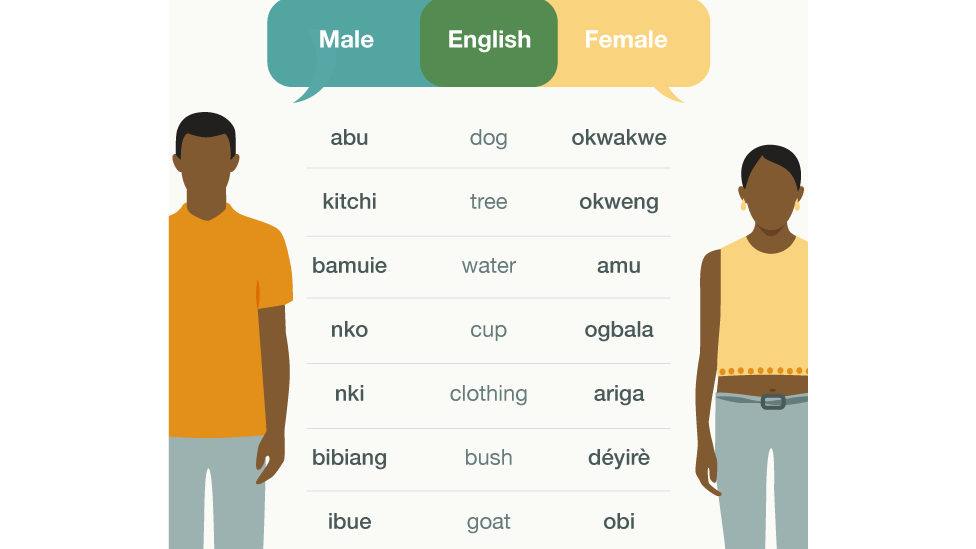
It is not clear exactly what proportion of words are different in the two languages and there is no pattern, such as whether the words are commonly used, related or linked to traditional roles for men or women.
“It’s almost like two different lexicons,” says anthropologist Chi Chi Undie, who has studied the community.
“There are a lot of words that men and women share in common, then there are others which are totally different depending on your sex. They don’t sound alike, they don’t have the same letters, they are completely different words.”
‘Sign of maturity’
She says the differences are far greater than, for example, British and American versions of English.
However, both men and women are able to understand each other perfectly – or as well as anywhere else in the world.
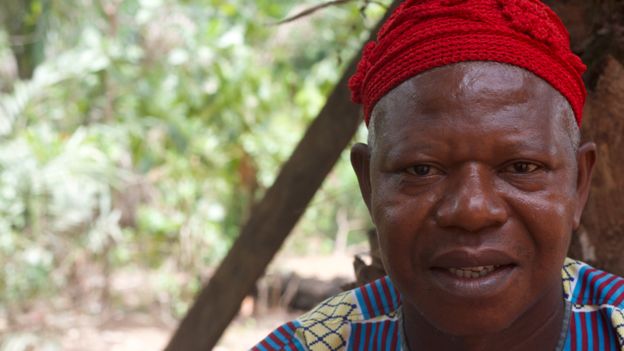
This might be partly because boys grow up speaking the female language, as they spend most of their childhoods with their mothers and other women, as Chief Ibang explains.
By the age of 10, boys are expected to speak the “male language”, he says.
“There is a stage the male will reach and he discovers he is not using his rightful language. Nobody will tell him he should change to the male language.”
“When he starts speaking the men language, you know the maturity is coming into him.”
If a child does not switch to the correct language by a certain age, they are considered “abnormal”, he says.
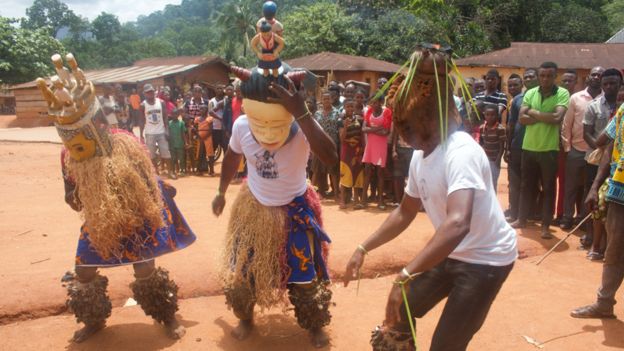
Ubang people are immensely proud of their language difference and see it as a sign of their uniqueness.
But there are different theories about how it happened. Most of the community offer a Biblical explanation.
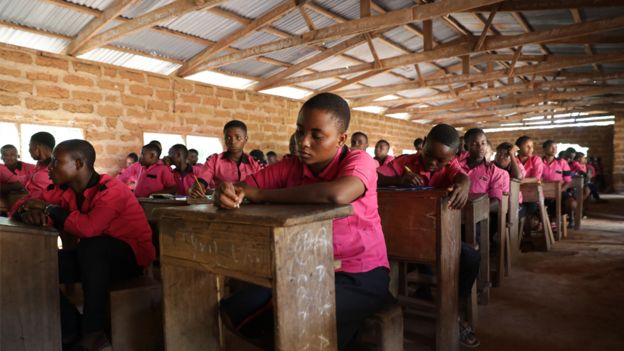
“God created Adam and Eve and they were Ubang people,” says the chief.
God’s plan was to give each ethnic group two languages, but after creating the two languages for the Ubang, he realised there were not enough languages to go around, he explains.
“So he stopped. That’s why Ubang has the benefit of two languages – we are different from other people in the world.”
‘Dual-sex culture’
Ms Undie has an anthropological theory.
“This is a dual-sex culture,” she says.
“Men and women operate in almost two separate spheres. It’s like they’re in separate worlds, but sometimes those worlds come together and you see that pattern in the language as well.”
